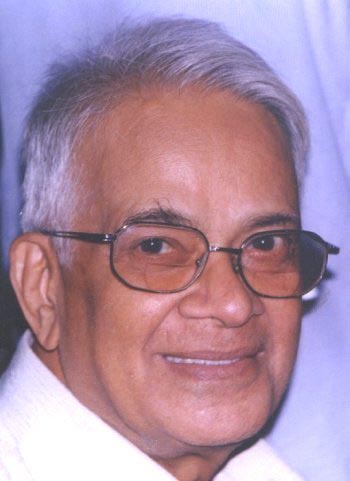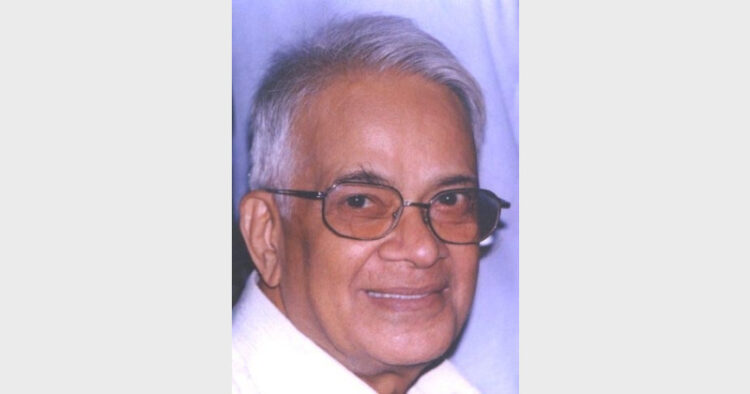
Gurudev Rabindranath Tagore’s relevance?
By MV Kamath
It is something of a sad surprise to learn that not much is being done on an all-India level to celebrate the 150th birth anniversary of Rabindranath Tagore—Gurudev, as Gandhiji rightly called him. He was born on May 7, 1861, the youngest of the seven sons of Maharshi Debendranath Tagore (1817-1903). The sixties of the 19th century gave birth to several outstanding national leaders like Jawaharlal Nehru’s father, Motilal who, too, was born in May 1861. Swami Vivekananda was born in 1863, Gopala Krishna Gokhale on May 9, 1866 and Mohandas Karamchand Gandhi on October 2, 1869. It was a stunning decade; Gurudev, Gandhi and Swami Vivekananda became world figures.
Tagore became the first Indian – indeed probably the first Asian to win the Nobel Prize for Literature. He received the Award on the strength of his Geetanjali which has long become a classic, though he had written over 1,000 poems, some 2,000 songs, many short stories, plays, dance dramas, essays, works of criticism, novels and even translations. By any reckoning, an amazing amount of literary work to which one may add his paintings of which there are several hundred! It is said that though he was an icon to the Bengali bhadralok, he himself was suspicious of his worshippers. His sense of patriotism, even though he had accepted a British Knighthood, was acute – in fact he was in a way even ahead of the Mahatma.
For example, after the Jallianwalah Bagh massacre he was so upset, that he wrote to Gandhiji asking him to come to the Punjab, defy the then prevailing Martial Law and get arrested, to awaken the world beyond, of British barbarity. The Mahatma’s reply was: “I do not want to embarrass the government now”. Shocked, Gurudev approached a Congress leader in Calcutta, no less renowned, Chittaranjan Das with a request that a public meeting be held in the city to protest against British atrocities. CR Das was not forthcoming either. Disgusted, he did what, on his own, he could do – return the Kinghthood that had been bestowed on him. That certainly called for immense amount of courage. In many ways he was ahead of the Congress leaders of his times.
His famous poem, beginning with the lines: Where the mind is without fear and the head is held high” spoke of the times in which he lived, when colonialism and imperialism ruled the roost and many in western-ruled colonies spread from Africa to East Asia lived in fear and dered not hold their heads high. Gurudev’s poem – prayer – was intended to rouse them to action and enable them to recover their self-respect. He wanted them to seek “a heaven of freedom” where “the clear stream of reason has not lost its way into the dreary desert sand of dead habit”. And that was a prayer anyone from Morocco and Algiers to Vietnam and Cambodia – colonies all, could utter.
Tagore was as Indian as any Indian could be – culturally and otherwise – but he was, unlike the Mahatma, scientifically-minded and had his own concepts of what is – and should be – truly ‘Indian’. He showed it in the setting up of Shantiniketan and Sriniketan. Unlike the Mahatma, he was a modernist. True modernism, he said in one of his lectures at Oxford “is freedom of mind, not slavery of taste”. As he put it: “It is independence of thought and action, and not tutelage”. On that point, of course, the Mahatma would have agreed with him. We think of Tagore strictly as a poet/philosopher, as a dramatist, even an artist and not, under any circumstances, a politically-minded person. That would be a wrong assessment. After a visit to the Soviet Union in 1930, like Jawaharlal Nehru after him, he felt sensitised to the rights and struggles of the depressed and the lost. He even went to the extent of describing his visit as his life’s pilgrimage, showing how poorly he was informed about the ways of the newly established communist raj which had gone on a killing spree against the kulaks – rich peasantry.
At the same time he was opposed to Nazis and wished the Red Army success in defeating the German aggressor. What he would have thought of Subhas Chandra Bose’s visit to Berlin to enlist Gernam support to India’s freedom movement is anybody’s guess. He thought that European civilisation was crumbling. About two months before his death in 1941 he wrote: “I had at one time believed that the springs of civilisation would issue out of the heart of Europe. But when I am about to quit the world that faith has gone bankrupt altogether…” The question today is: Is Guruji revelant to today’s world? If so, in what way? What would he have said of Naxalism and Maoism? Would he have extended support to the Marxists? Would he have agreed to the Congress passing the Quit India resolution? Would he have agreed to the Partition of India? How would he have dealt with Mohammad Ali Jinnah and his Muslim League and the manner in which literally thousands were killed on Liberation Day when the streets of Calcutta were flooded with innocent blood?
In 1905, he was opposed to the partition of Bengal wrought by Lord Curzon and joined demonstrations against partition, writing patriotic songs and even popularising the ritual of rakshabandhan (tying a piece of thread around the wrist) as a symbol of brotherhood among all Bengalis, Hindus and Muslims. The basic and most characteristic of Gurudev’s philosophy of life, according to Krishna Kripalani was his emphasis on the development of the human personality and his deep-set conviction that there is no inherent contradiction between the claims of the so-called ‘opposites’, namely, the flesh and the spirit, the human and the divine, love of life and love of God, joy in beauty and the pursuit of trust, social obligations and individual rights, respect for tradition and the freedom to experiment, love of one’s people and faith in the unity of mankind.
These seeming opposites, the poet argued, could, and must be reconciled. In a way Gurudev was more than a man of his times. He was a man for all eternity. Above anything else, he was an intensely human being, who did not recognise class, caste or religion or even nationalism. He was a social revolutionary. As he once confessed in a letter to a friend: “I want to tear out from the net of my relatives, domesticity and the thousands of gross and petty fogging societal habits and to enlist myself instead into the crowd of the common people…” One wants to remember that Gurudev, as much as the man who started Shantiniketan and inaugurated a new style of education in the country, and a new, even revolutionary, way of thinking. Yes, we can do with another similar Gurudev today in a world full of conflict.
?














Comments